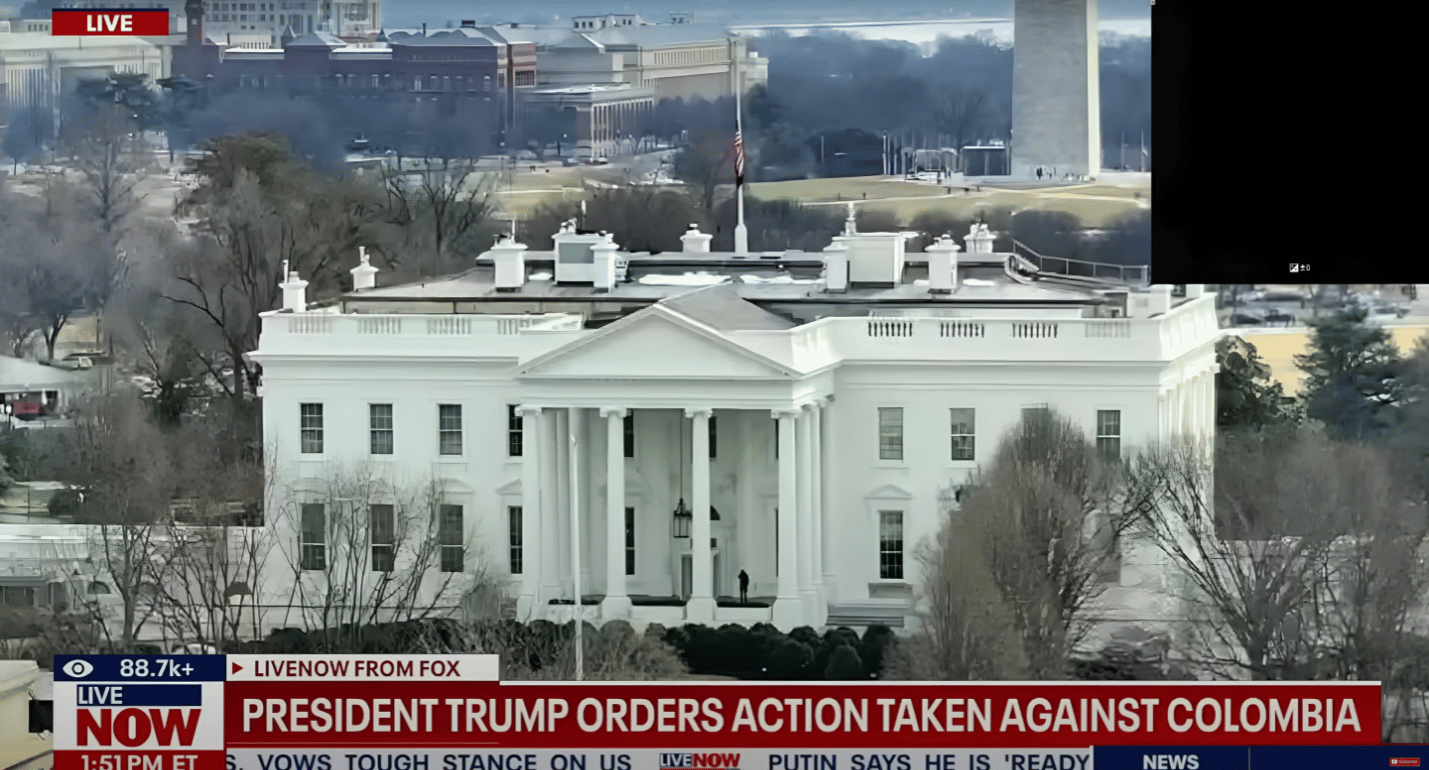In a dramatic escalation of international tensions, President Donald Trump has announced sweeping retaliatory measures against Colombia after the South American nation refused to accept deportation flights carrying illegal immigrants from the United States. The announcement, made via Trump’s Truth Social account on January 26, 2025, signals a hardline approach to immigration enforcement and international diplomacy.
The Incident: Deportation Flights Denied
The controversy began when Colombian President Gustavo Petro refused to allow two U.S. deportation flights to land in Colombia. The flights, carrying individuals described by U.S. officials as “illegal criminals,” were part of Trump’s aggressive deportation campaign aimed at removing individuals with violent criminal records. Petro defended his decision on social media, stating that Colombia would not accept its citizens being treated as criminals and demanding that the United States adopt a more dignified protocol for repatriation.
“Colombian migrants can’t stay in a country that doesn’t want them,” Petro wrote. “But they must be returned with dignity and respect.”
Trump’s Response: Swift and Severe
In response, Trump issued a series of retaliatory measures, calling Petro’s actions a threat to U.S. national security and public safety. Among the immediate steps announced:
- Emergency Tariffs: A 25% tariff on all Colombian goods entering the United States, set to increase to 50% within a week if the issue is not resolved.
- Travel Ban: A travel ban targeting Colombian government officials and their allies, along with immediate visa revocations for officials, party members, and their families.
- Customs and Border Measures: Enhanced inspections of all Colombian nationals and cargo entering the U.S., citing national security concerns.
- Financial Sanctions: Treasury-imposed banking and financial sanctions aimed at pressuring the Colombian government into compliance.
“These measures are just the beginning,” Trump declared. “We will not allow the Colombian government to violate its obligations with regard to the acceptance and return of criminals they forced into the United States.”
The Stakes: Colombia’s Position
Colombia’s refusal to accept deportation flights represents a broader challenge to Trump’s immigration policy, which has prioritized the deportation of individuals with criminal records. While Petro acknowledged his country’s responsibility to accept its citizens, he insisted that the U.S. must handle deportations with greater respect and sensitivity.
The Colombian president’s stance has resonated with some international observers who view Trump’s deportation policies as overly punitive. However, critics argue that Colombia’s refusal undermines its obligations under international law and bilateral agreements.
Public Reactions and Economic Implications
Trump’s swift retaliation has sparked intense debate. Supporters praise his decisive leadership, arguing that the measures will compel Colombia to meet its obligations and send a strong message to other nations. “This is about protecting American citizens and enforcing our laws,” said one administration official.
Opponents, however, warn that the tariffs and sanctions could damage U.S.-Colombian relations and harm American consumers by driving up prices on popular Colombian imports, such as coffee and fresh flowers.
“This is a trade war disguised as immigration policy,” said one trade analyst. “Both sides stand to lose if cooler heads don’t prevail.”
What’s Next?
As tensions escalate, all eyes are on Colombia to see how Petro’s government will respond. Trump’s measures have already drawn international attention, with other countries in the region closely watching the outcome. For now, the U.S.-Colombian standoff underscores the complexities of global immigration policy and the challenges of balancing enforcement with diplomacy.
With Trump doubling down on his “America First” agenda, the situation is a test of his administration’s ability to enforce its policies without alienating key international partners. As the deadline for increased tariffs looms, the stakes for both nations could not be higher.
